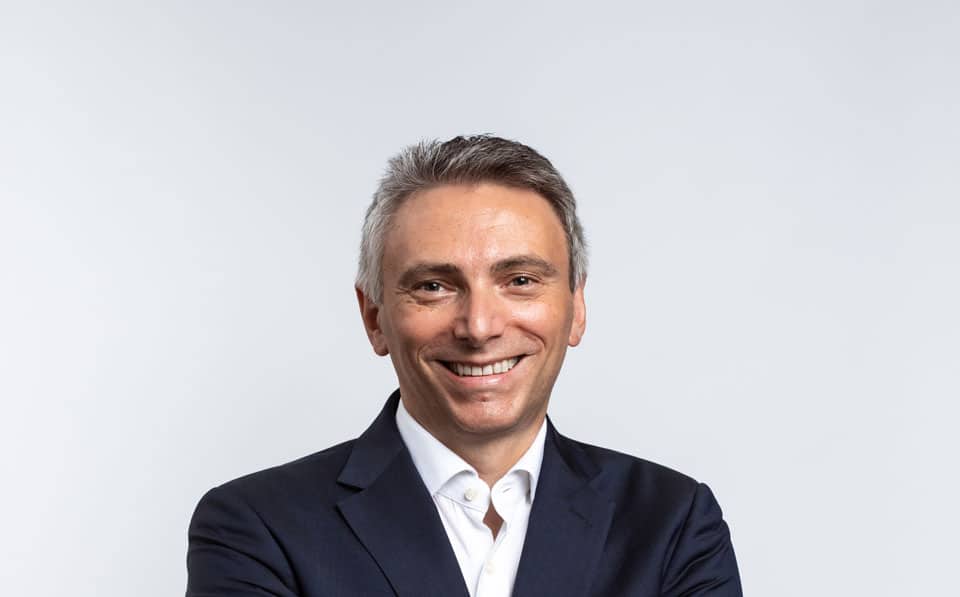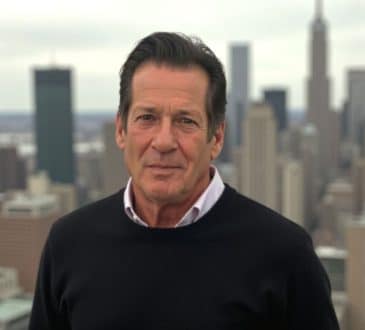The future of energy

One of the most critical industries of our society, as a whole, is energy. We need it desperately, and always at the lowest cost. Most often than not, we get it from the farthest locations, where natural elements and resources are abundant, thanks to heavy industrial equipment and complex deals with governments, on the sourcing and receiving sides of the equation. It’s also an industry that must become decarbonized, while shifting geopolitical interests and equilibria. Can data help? Can Total Marketing be of support to the leaders in this field, and their CEOs? Can frictionless information across supply, providers, employees and clients help us extract and use energy at maximum efficiencies, and only where and when it matters?
This is why we decided to approach Toni Volpe, who is the CEO at Nadara, born at the beginning of 2024 out of a merger, to create the first wind onshore provider in Europe. Owned by a private fund, and with offices in the US and Europe, it has sales in excess of a billion euros and represents a leader in green energy in many European markets. “We are a bit behind other industries in capturing, processing and using data, at least in a fully automated fashion. The merger has triggered the need, for example, of a combined data lake, where to collect and clean internal data. The priority for us is to fix the basics, when it comes to information and business relevant insights,” says Volpe.
However, seamless data flows are an area of focus for the future of Nadara. “From a supply chain point of view, the need for decarbonization and a lower carbon footprint has forced us to move from transactional relationships with our suppliers towards a collaborative and holistic approach to our inbound network. In the past, the only thing that mattered was basically cost, for any tender. Now, purchasing equipment needs to include cooperation and sharing of information, plans, objectives, of course in full respect of confidential data, but with the goal of improving the final infrastructure, thanks to the combined effort of all stakeholders. We need solar or wind plants that have impact and highest efficiency, so we need all hands on the deck. The metrics for success are richer than just cost per se. We look at how we can create a larger profit pool for all. We don’t have sensors everywhere and we don’t process all data automatically, but we are moving in that direction, so that every plant can turn into a live source of information. It’s not as digital as it could be, but it’s on my must-do list. Plus, we need to do this at scale, for better and better future energy factories,” stresses Volpe.
The same principle applies to employees and partners, humans so to speak, who work in corporate roles or maintenance. “Besides health & safety, which is key, tracking and monitoring people will allow us to move from schedule-based interventions to proactive and predictive actions, based on the actual conditions of the equipment, thus reducing costs and capturing real life data, which again can be leveraged for innovation, consistency of supply and higher value added services towards our final customers. The relationship with our larger, direct key accounts, for example, moves into the same open and collaborative direction. Today it’s done more via a manual exchange, but it will move into a fully automated flow, with immediate actions taken by machines, which will ensure consistency and optimization of our services,” adds Volpe.
Exponential technologies, like AI, are being used for maintenance and, slowly but progressively, also for advisory tasks; for example, those linked to the analysis of energy consumption numbers. The human contribution is still present, and it can be replaced by machines in the medium term, thus generating efficiencies and, again, new profit pools. “Hard to quantify exactly, but efficiencies in the whole industry is at least around 15%, and it could be more in a scenario of seamless and instant data flows and actions triggered by artificial intelligences. If we draw the line, future energy will be green, and it will remain a commodity, with an increasingly lower cost, especially thanks to tech advancements. Companies like ours will have to complement their sales with higher value added services. It’s a long road. But, it’s happening. This is why we are internalizing world-class human and artificial intelligence,” closes Volpe.
Total Marketing and regulations will bring the world to a future, where energy will be 100% from green sources, while being compelling from a pricing point of view. We’ll direct energy, and the manpower associated with it, where it matters, when it’s needed, while sweating our assets in an intelligent way. The capillary equipment, distributed globally and physically on the earth’s surface, could capture more data than just what’s needed to manufacture mega-watts, turning energy mills into data factories for land, sea, sky and livestock, just to name a few, and exploding the economic value associated with their operations. Volpe is used to change, and so are Nadara and its owners. The industry will need machines to run the future green watts’ show like a clock, and humans to add more green to the green.
———-
Written by Francesco Pagano.
Have you read?
People, not ideas, tools, money or time: The True Drivers of Innovation.
Navigating the Business Impact of AI-Driven Search.
Five Things You Need To Be A Highly Effective Leader During Turbulent Times.
Let the Journey Continue.
What kind of negotiator are you?
Bring the best of the CEOWORLD magazine's global journalism to audiences in the United States and around the world. - Add CEOWORLD magazine to your Google News feed.
Follow CEOWORLD magazine headlines on: Google News, LinkedIn, Twitter, and Facebook.
Copyright 2025 The CEOWORLD magazine. All rights reserved. This material (and any extract from it) must not be copied, redistributed or placed on any website, without CEOWORLD magazine' prior written consent. For media queries, please contact: info@ceoworld.biz








